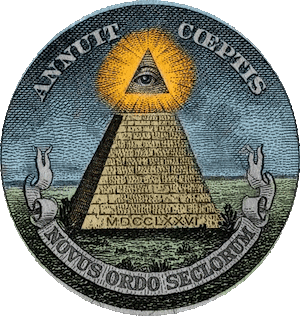
| Jacket 40 Late 2010 | Jacket 40 Contents | Jacket Homepage | Search Jacket |
This piece is about 9 printed pages long. It appears simultaneously in The Critical Flame.
It is copyright © Henry Gould and Jacket magazine 2010. See our [»»] Copyright notice.
The Internet address of this page is http://jacketmagazine.com/40/r-gudding-rb-gould.shtml
Gabriel Gudding:
A Defense of Poetry
Pittsburgh, PA: Univ. of Pittsburgh Press, 2002
and
Rhode Island Notebook
Champaign, IL/London: Dalkey Archive Press, 2007
reviewed by
Henry Gould

Gabriel Gudding, photo by Gina Franco
1
Gabriel Gudding is an upstart crow, the only shake-scene in the country. The scene he shakes and bobbles is not merely the snow-globe of the “poetry scene,” but a larger sphere, what the cognoscenti of the High Literary Theory scene used to call the “scene of writing” itself.
2
Gudding is the author of two books of poetry: the first, published in 2002, titled A Defense of Poetry, being a collection of short poems, the second, in 2007, titled Rhode Island Notebook, being a book-length poem of 436 pp., written while driving a small Toyota automobile back and forth (stopping only for gas and bathroom) between Illinois and Rhode Island, repeatedly, for a little over two years (2002–2004). Both books are trial runs, forays, imperfect and uneven in quality, parts of a prodigal (a Prodigal’s) journey, promising further developments: two books which, together, despite their occasional jolting potholes, present a powerful challenge to the readership and milieu of contemporary poetry.
3
If I were foolish enough (and I am) to try to characterize that milieu, I would say we live in a time of near-systemic obfuscation — political, economic, educational — amid which the sphere of poetry hovers with an air of insouciant and facetious cleverness. Poetry per se has evolved, it seems, into light verse: an occasion for admirable displays of a poet’s intellectual graces (wit, charm, technical facility, humor, thoughtfulness, etc.). At first glance, Gabriel Gudding seems trimmed to fashion: he is a natural comic, a master satirist, one in whom the wit of a savage Apollo flays and then inhabits the skin and armature of Marsyas (ie., standard poetic rhetoric and devices); Gudding turns conventional verse inside out, filling its disemboweled frameworks with hilarious and volatile nonsense. Yet he leaves those structures visible still standing, to a degree; the nonsense which he supplies them is curiously rich with traditional, even archaic, imagery and diction. His vocabulary is verily Shakespearean — or more accurately, Chaucerian — in breadth and variety : note, for example, these lines (drawn at random) from the short poem “Dear Woodlouse” :
4
Few of us have heard
Your crinkling integument,
Your fuss and jog
At the grease and riddled wood
That shims, as always,
The axle of the world.
5
(This is a good if insufficient example of how Gudding unites a mincing diction, a faux-portentous or -poetical manner, and a sheer-whacky address.) In all this (I could provide a hundred examples), Gudding is a star of large magnitude in the current pantheon of witty versifiers. Yet there is something else — something more severe, more liminal — lurking hereabout.
6
Gabriel Gudding in these two books has composed a poetry that is essentially incommensurate with itself. The targets of his satire are not so much objectified as absorbed into his own persona, and rendered utterly ridiculous. In other words, the true (double) target is himself, and also poetry itself. As it has been said, “the best defense is a good offense:” what Gudding does is mount a self-reflexive assault on the poetic narrator, and carry his attack to its logical limit — to a vanishing point of abject absurdity. The convulsive giggling laughter which his lines provoke flows into something more akin to self-abandonment — the St. Vitus’ dance of an epileptic apocalypse. Here, for example, is the opening stanza of the brief narrative poem, “Hair:”
7
I balance the big convict on my head
and walk out of the prison with the inmate
beneath my bangs. My head is rather large. We
approach the guards with whom I chat amiably. They don’t
suspect there is a convict on
my head. I walk through the gates to the parking
lot where I put the prisoner down and say
don’t run, it might look suspicious.
8
In this mode, Gudding paradoxically proves to be something of a traditionalist. There is, in fact, a plot, a literary-historical narrative, within which the poet Gabriel Gudding can be seen to participate, or to begin to figure. It is the tale, both absurd and terrible (sublime), of the snake shedding its skin: of the emergence of a New World self: a self as Prodigal, lost in the wilderness, and desiring wilderness: epitomized in the conclusion of Huckleberry Finn, when Huck sheds his civilized skin — that is, all the ordinate cultural narrations of his identity and “lights out for the country”.
9
In a 1918 essay (“Henry James: In Memory”), T.S. Eliot wrote, “It is the final perfection, the consummation of an American to become not an Englishman, but a European…” This is certainly true with regard to Henry James, but for Americans, there exists another, wilder model to which the artist aspires : someone more native and primordial, uncanny and unaccountable. I’m referring to the elusive Everyman-figure of the embodied Self, the mute Person standing at the limit, the end-point of writing and speech: represented forcefully (in trickster-mode) by the figure of Melville’s Confidence-Man — a manifestation, an imponderable incarnation of the power of signs, appearing suddenly (at the opening of the novel) out of nowhere, like Manco Capac, the sun-king of Peru; or the All-embracing hero-speaker of Whitman’s Song of Myself, when he asserts “This is no book, but a man”; it is Jesus the eschatological Ur-Person, the Ancient of Days, as end-point, as telos — fulfillment of all text and scripture (and time); it is Coleridge’s everlasting I Am of the Spirit, bodied forth in the climactic Now of the poet’s imagination; it is the Vedic-Miltonic Satan, disruptor of cosmic cycles and worlds, of the radical novus ordo seclorum (whose Romanticism Eliot took pains to tame, and Blackmur and Berryman, in turn, attempted to reconcile).

The phrase Novus ordo seclorum (Latin for New Order of the Ages) appears on the reverse of the Great Seal of the United States, first designed in 1782 and printed on the back of the American dollar bill since 1935. The phrase also appears on the coat of arms of the Yale School of Management, Yale University’s business school. — Wikipedia
10
“The pure products of America / go crazy” — W.C. Williams spoke more truly than he knew : the megalomania of America (say, the comet-path of Robert Lowell) finds its apotheosis in a sort of poet-demi-god, a “rough beast” slouching toward New World Bethlehem: viz. the cover design of A Defense of Poetry : silver sunrays, or moonrays, enveloping a tiny image of the author, garbed as Superman.
10
But Superman, we know, was only unassuming Clark Kent in ordinary life — a sort of Walter Mitty (Prufrock) figure, a regular guy, an Everyman, subject to the same weaknesses, delusions, bad choices and mistakes as everyone else. Many of the poems in A Defense, and many passages in the Notebook, seem to originate in that stuttering, semi-speechless basement of vernacular American reality. For example the second poem in A Defense, “Robert Lowell”, parodies Lowell’s histrionic, genealogical egoism within a melodrama of dogs and grandmothers farting and fighting in a squalid backyard:
11
We ran just past the oaken fence before grandmother farted
and sent the dog hurtling backward
in a blast of combed-away fur.
Her wind caught me in the nose and turned me like a rooster vane
and for a moment the world was in a fury.
Grandma of course was thrown forward
in the manner of a cuttlefish
who escapes by the explosion of ink.
It was her prerogative
to abandon me to face the dog alone
since she can’t afford to be harried
by animals so late in life.
12
Lowell himself was a major player in a long and unremitting literary bullfight in America, between technique and personhood, between the poem as artifact and the poem as spiritual testimony. This debate, this particular battle — in the context of a post-Puritan America obsessed with, and possessed by, protocols, science, technical know-how, things, craft, credentials, group-think, spin, celebrity, prestige, and academic certification — must be considered central. In the decade before Lowell’s Life Studies initiated the age of literature-as-personal-memoir, a critical battle was fought by R.P. Blackmur and John Berryman, against the systematization of “formalism” and technique as normative, as rational measures of aesthetic objectivity (by the New Critics). In his 1984 monograph, The Stock of Available Reality [1], James D. Bloom has argued that Blackmur and Berryman defended an older approach to poetic making, subsumed within the trope of humilitas-sublimitas, or the “humble sublime:” that is, the intense yoking-together of the highest and lowest dimensions of human experience, of low thoughts and high emotion. Rather than smoothing-over and suppressing aspects of “available reality,” on behalf of some standardized strictures of proper literary manners, the “humble sublime” represents an eruption into writing of that which cannot be said, or that which resists saying. This vein of style (as articulated by critic M.H. Abrams, and applied by Bloom) in turn sinks deep roots in the “domestic realism” of Biblical narrative as evaluated definitively by Erich Auerbach, in his critical masterwork, Mimesis, where the Absolute (God) descends to dicker, amid tragicomic misadventures, with the likes of Abraham, Ruth, Jacob, Samson…
13
So (to conclude this roundabout peroration) how, then, is Gabriel Gudding to be understood as representing some version of tradition? Ironically, Gudding’s liminal, comic mask (an American sub-sub-Superman) makes possible an emotional and stylistic range which is closer to the Berrymanian, Shakespearean, Chaucerian, Rabelaisian, medieval and Biblical sources of “European” literature, than does Eliot’s idealized and cosmopolitan (Jamesian) expatriate. American literature trends inexorably toward Apocalypse: the little apocalypse we confront each time we reach the limits of “discourse” (even poetic discourse), each time we confront Nicholas of Cusa’s philosophical paradox of “learned ignorance”, each time we come face to face with the mystery of subjectivity, of personhood, which frames all our unutterable, ineffable, “vernacular” experience.
14
Gabriel Gudding’s stance of limpid-limping absurdity, what we are calling the humble sublime, is curiously embodied in his own name. On the one hand, we have the heavenly Gabriel, blowing his apocalyptic last trump, offering his angelic annunciation of Incarnation on earth, from the heights of heaven and the heavenly hosts. On the other hand we have this guttural, earthy last name (of some Scandinavian extraction — Danish?): grounded, cruddy, plodding, bloody, dug-in and digging through the muddy and besmirched and fallen-down horse-manured slimy ramshackle medieval barnyard world of Minnesota farm folk, from which he crawled and emerged… to begin muttering and caterwauling his near-incomprehensible, teeth-grinding, hilarious protest against the inevitable reifications of all literature.
15
Gabriel Gudding’s two books are partial, distinct and complementary. A Defense opens with the title poem (“A Defense of Poetry“), which includes an epigraph from Charles Bernstein: “The test of such poetry / is that it discomfits.” It discomfits, all right: the poem is a rambling, obstreperous insult-diatribe aimed at Bernstein himself, in a kind of 17th-century “flyting” style (example : “And just as you swallowed a cherry’s stone and produced a tree, you recently ate a burger and found a bull honking among your feces. / For I would more expect a Pigeon to tote a rifle / than a wise syllable issue from your cheesepipe. / And as your nose is packed with Error, I advise you to pick it often”). This poem is followed by rude satires on two Formalist and Confessional paragons of a previous generation (Richard Wilbur, Robert Lowell), which serve simultaneously to acknowledge and to mock their works. Then comes a sincere verse epistle (and “classical” elegy) addressed to a late (just-whacked) housefly; a “Poem Imploring the Return of my Butt”; a Civil War plea from an infantile infantryman (dedicated to Ken Burns); three short prose pieces (such as, “On the Rectum of Peacocks”) set in backwoods farmyards; a poem called “Poems”, about picking chickadees out of bellybuttons; more small-town burlesques on quasi-Edgar Lee Masters themes; “Ronald Reagan”, a brief lyric in which a mentally-challenged President addresses confused questions to the First Lady; a mock seafaring-poem, full of blocky clickety-clack sounds… and so it goes, with increasing political range and diversity of parodic models, to close with a “Requiem Cadenza (to the civil libertarians who died on September 11, 2001)”.
16
Throughout this first book, Gudding’s stance resembles that of the early, sarcastic T.S. Eliot — cold, sardonic, and controlled — his razor-sharp witticisms heightened by tightly-wound metrical and sonic enhancements. Yet, again, beneath the sarcasm, Gudding displays an extra dimension, as the clown-mask veers toward abysmal self-humiliation. The joke, to repeat, is mostly on the scribbler himself, and on the chilly, alienated, stylized Mayan masks of scripture in toto.
17
Rhode Island Notebook is a more ambitious, and to the same degree imperfect, work. Here Gudding sets aside his lyric-satiric mask, and assumes the Hesiodic, Poundian, reportorial, documentary mantle of epic. RIN is prosaic, discursive, notational (really notational: written one-handed while driving on the Interstate). The method of A Defense — that is, a kind of building rehab/demolition, hollowing out an existing structure to its rhetorical (syntactic) scaffolding, and then replacing the furnishings with something very like Hamlet’s deadly, antic-goofball raillery (is Gudding a Danish name?) is replicated in RI Notebook on a different scale. A Defense’s comic extremity, the speaker’s heroic (or better, kenotic) self-abasement, is, in RI Notebook, dramatized as epic plot: an anti-hero’s desperate highway back-&-forth, across an American-psychic “wasteland” (glimmering occasionally with humor, hope and beauty), in order, simultaneously, to juggle a job, endure an eroding marriage, maintain a connection with a beloved young child, and, last but not least, to write the poem itself, while driving. The diaristic notations of Pound’s Cantos or Olson’s Maximus are reconfigured here in extremis automobilius:
18
Hair is a kind of laundry.
2:45 PM OCT 25 02 Jct 74 e
Superbly foggy and misty. A cupped cake
of fog. Ten nights gone now since C___
said to me on the phone, “Dad, I can read.”
And D says
she’s right in that assessment. D wrote
out “I can dress myself” and C___
read it back. Sen. Paul Wellstone has died. In a
plane crash. Flew right into the Bushes:
foggy sad day for
us, charming great man I liked him.
Maria Damon suspects as do many
a assassination Scranton is gorgeous this
morning.
19
[Note the unmistakable echo of John Berryman’s elegiac Dream Songs, here.]
20
[In the interest of full disclosure: Maria Damon and I (Henry Gould) were legal witnesses to the marriage, in Providence, RI, of “C’s: parents for which (subsequently ended) marriage RI Notebook is memoir, elegy, examination.]
21
Examples always have their limits: but this passage is a pretty good example of the range of tones and materials in this long poem: personal, political, meteorological, lexical, metaphorical… all jumbled together in an semi-farcical parody of Pound & Olson: abject because subject to the kinds of practical and psychological constraints which informed Pound’s Pisan sequence (written in the outdoor jail-cage). If Gudding’s notations do not quite match Pound’s for lyrical precision or allusive subtlety, we can chalk it up to youth, for one thing: sometimes Gudding’s remorse verges on shallow-draft sentimentality; sometimes his political rants display a parallel strain of febrile immaturity, a callowness (the obverse of just about every comedian: an unripe, ponderous “serious side”, strained from lack of exercise). In this, you could say, he slips back into the faulty patterns of his generation: a nervous, polemical self-righteousness, mixed with impressive verbal dexterity, facetious wit.
22
What leaps out from this jambalaya, for me, is Gudding’s innate and Hesiodic (or Homeric) capability for poetic perception, netted in metaphor and imagery. It’s as if the lonely nekuia of staring through a smudged windscreen at the snowy blur of a flat and infinite midwestern landscape, again and again, actually stimulated Gudding’s picture-making faculty. Surfing at random:
23
Maybrook
no fog, just haze
in the middle trees
*
Also at the rt on a
mountainous snow-wave of an
west Ohio hill beyond a bare-leaved
picket of blue hickory in the
twilight swash of slush light
*
If barren ignoble roosters
make in their gizzards
barky old hymns
*
Truth is the only thing that quiets the deepest
ache of the heart.
25
There are times when Gudding’s “grab-bag” of observation, satire, and polemic all sort themselves together — as when, at the end of life, the Egyptian Osiris weighed a person’s heart (as plumb, as plummet) against the feather of truth… and, wrapped within the plangent tone-shawl of his longing and remorse, it all comes clear. A human poetry, humble and sublime: an American testament, for now.
[1] Bloom, James D. The Stock of Available Reality: R.P. Blackmur and John Berryman (Lewisburg: Bucknell Univ. Press, 1984)

Henry Gould
Henry Gould’s long poems include Stubborn Grew (Spuyten Duyvil Press, 2000). He also edited & published the collected poems of Edwin Honig (Time and Again : poems 1940–1997; XLibris, 2000). Henry’s books of poetry & fiction are available at Lulu.com (http://stores.lulu.com/henry_gould) . He sleeps & daydreams in Providence, Rhode Island.